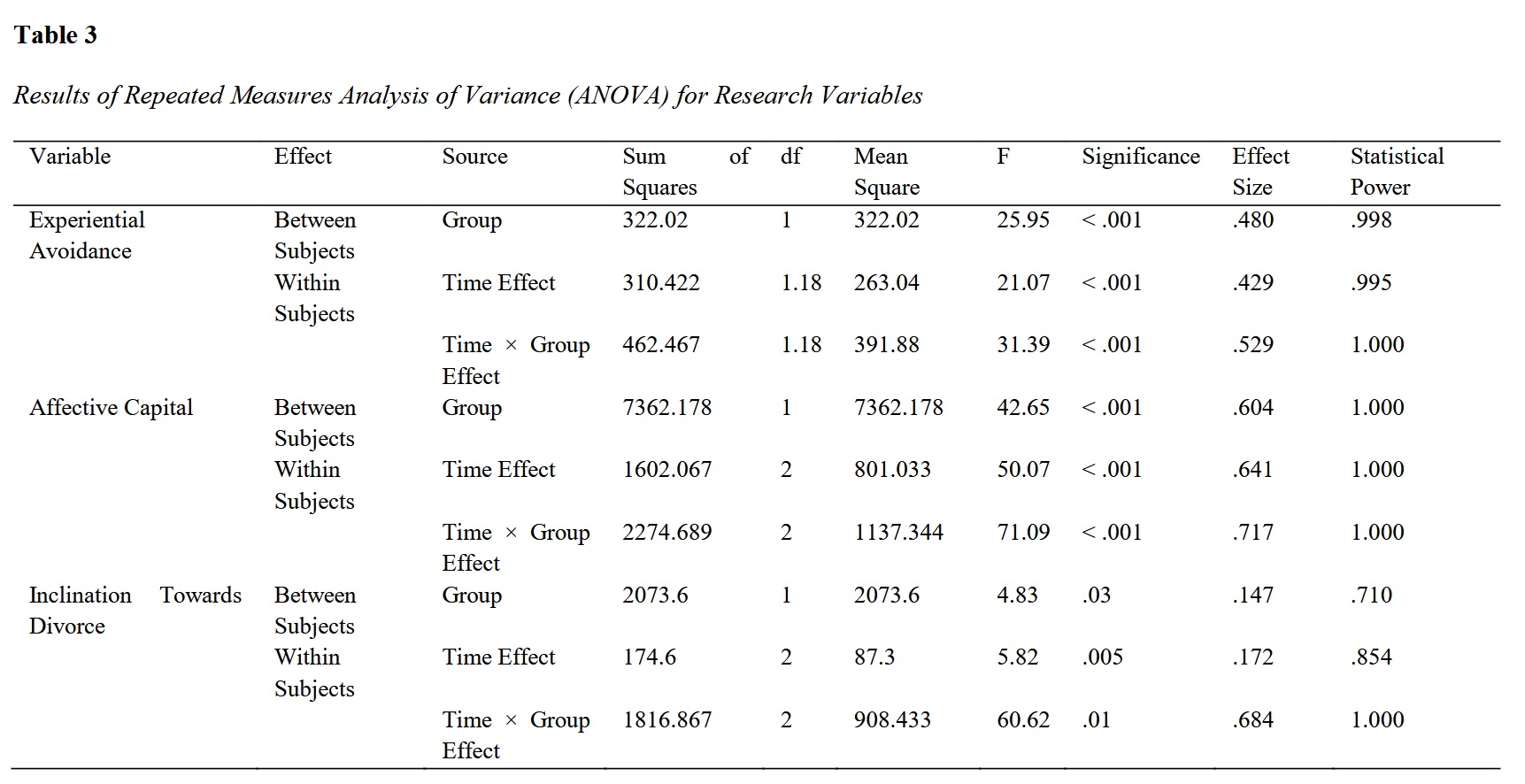The Effectiveness of the Narrative-Based Acceptance and Commitment Counseling Package on Experiential Avoidance, Affective Capital and Desire to Divorce in Women on the Verge of Divorce
Keywords:
Narrative-focused Acceptance and Commitment Therapy counseling package, experiential avoidance, affective capital, inclination towards divorce, women on the verge of divorceAbstract
Objective: Divorce is the primary factor in the disintegration of the most fundamental social foundation, namely the family, which has detrimental effects on both spouses, especially women. Therefore, this study aimed to investigate the effectiveness of a narrative-focused Acceptance and Commitment Therapy (ACT) counseling package on experiential avoidance, affective capital, and the inclination towards divorce among women on the verge of divorce in Isfahan.
Methods and Materials: The research method was a quasi-experimental design with a pre-test, post-test, control group, and a two-month follow-up phase, and the sampling method was voluntary. Accordingly, with coordination with counseling centers affiliated with the judiciary, among the volunteers who were willing to participate in the study and considering the inclusion and exclusion criteria, 30 individuals were randomly selected and then randomly assigned to three groups: experimental and control (each group consisting of 15 individuals). The experimental group received the treatment in eight 75-minute group sessions based on the package developed by the researcher. The control group, however, did not undergo any intervention. The research instruments at the pre-test, post-test, and follow-up stages included the Golparvar Affective Capital Questionnaire (2016), Acceptance and Action Questionnaire (Bond, 2011), and the Roosevelt et al.'s (1986) Divorce Proneness Scale.
Findings: The results of the repeated measures ANOVA indicated that the narrative-focused ACT counseling package had a significant effect on experiential avoidance, affective capital, and the inclination towards divorce among women on the verge of divorce at the post-test stage (p < 0.05), and the effects of the counseling package were sustained at the follow-up stage (p < 0.05).
Conclusion: Based on these findings, the narrative-focused ACT counseling package can be used as one of the treatments for improving psychological variables in women on the verge of divorce.
Downloads

Downloads
Additional Files
Published
Issue
Section
License
Copyright (c) 2024 Maryam Mehri Broujeni (Author); Ilnaz Sajjadian (Corresponding Author); Mohsen Golparvar (Author)

This work is licensed under a Creative Commons Attribution-NonCommercial 4.0 International License.









